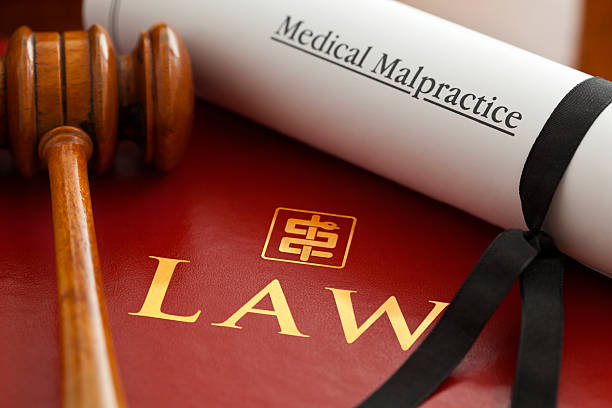Now Reading: How to Spot and Respond to Medical Negligence in a Hospital Setting
-
01
How to Spot and Respond to Medical Negligence in a Hospital Setting

How to Spot and Respond to Medical Negligence in a Hospital Setting
When it comes to health care, patients entrust medical professionals with their well-being, expecting competent and compassionate care. However, instances of medical negligence can jeopardize patient safety and result in negative consequences.
Understanding how to identify signs of medical negligence and responding appropriately is essential for safeguarding patients and seeking justice when necessary.
Spotting Medical Negligence: Knowing the Signs
Identifying potential signs of medical negligence is key for patients navigating the complex healthcare landscape. Unexplained complications post-treatment, misdiagnosis, delayed diagnosis, lack of informed consent, medication errors, and surgical mishaps are key indicators that demand attention.
Patients should be vigilant about unexpected health declines, prolonged diagnostic uncertainties, and discrepancies in medication administration. Recognizing these signs empowers individuals to engage in their healthcare actively, seek second opinions, and communicate effectively with healthcare providers.
Proactive steps, including consulting legal professionals when needed, ensure that the standard of care aligns with necessary expectations and safeguards patient well-being.
Unexplained Complications After Treatment
Recognizing unexpected complications after a medical procedure or treatment can indicate possible negligence. Unexplained infections, worsening conditions, or unforeseen side effects warrant careful consideration.
Misdiagnosis or Delayed Diagnosis
A misdiagnosis or delayed diagnosis can significantly impact a patient’s health. If there’s a sudden decline in health or a prolonged period without an accurate diagnosis, exploring the possibility of medical negligence is essential.
Lack of Informed Consent
Informed consent is a critical aspect of medical procedures. If a patient undergoes a treatment without being adequately informed of the potential risks and alternatives, it raises concerns about the quality of care.
Medication Errors
Incorrect medication dosage, administration errors, or prescribing the wrong medication are serious forms of medical negligence. Patients should be vigilant about any discrepancies in their prescribed medications.
Surgical Errors
Surgical procedures carry inherent risks, but errors such as wrong-site surgery, leaving instruments inside the body, or performing unnecessary surgeries are indicators of medical negligence.
Why is Hiring a Lawyer for Medical Malpractice Important For a Misdiagnosis?
These professionals bring specialized expertise, navigating complex statutes and regulations and ensuring a solid understanding of the legal framework. Their collaboration with medical experts enhances the case, providing crucial insights into standards of care, causation, and the extent of damages.
Additionally, attorneys play a key role in thorough investigations, gathering essential evidence to substantiate malpractice claims, including medical records and expert testimonies.
Beyond expertise, lawyers hold vital negotiation skills, facilitating effective communication with insurance companies or opposing legal teams. This is very important in securing a fair settlement that aptly compensates the victim. In the event of a trial, a medical malpractice attorney becomes an indispensable advocate, presenting evidence persuasively and safeguarding the victim’s rights in the courtroom.
Moreover, their role extends to navigating intricate legal procedures, ensuring timely and accurate filings, and objectively assessing the case’s strengths and weaknesses. Contact a Freidin Brown misdiagnosis lawyer today for more help in your claim.
Responding to Medical Negligence: The Practical Steps
Taking immediate and strategic steps is paramount when faced with potential medical negligence. Open communication with healthcare providers is the initial approach, seeking clarification and understanding the circumstances.
When concerns persist, consulting with a legal professional specializing in medical malpractice provides valuable guidance on potential courses of action, ensuring that the patient’s rights are protected and justice is pursued. Below are the most needed steps that you should do when responding to medical negligence:
Document Everything
Keep detailed records of your medical history, symptoms, and any unusual occurrences. This documentation can serve as valuable evidence if you decide to pursue a medical negligence claim.
Communicate with Healthcare Providers
Open communication with healthcare providers is essential. Discuss concerns, ask questions, and seek clarification on treatment plans. Clear communication can sometimes rectify issues and prevent further harm.
Seek a Second Opinion
If you suspect medical negligence, obtaining a second opinion from another healthcare professional can provide insights into the appropriateness of the treatment or diagnosis. It also strengthens your position if you decide to pursue legal action.
Speak With Your Legal Counsel
Engaging with a medical malpractice attorney is crucial if you believe you’ve been a victim of medical negligence. Attorneys specializing in this area can assess the circumstances, advise on the validity of your case, and represent you in court if necessary.
File a Complaint with Regulatory Authorities
Reporting the incident to relevant regulatory bodies ensures that appropriate investigations take place. This step contributes to improving healthcare standards and holds negligent practitioners accountable.
Keep Yourself Safe In the World of Healthcare
Identifying and responding to medical negligence in hospitals requires vigilance, communication, and informed action. Patients play an active role in their healthcare, and being aware of potential signs of negligence empowers individuals to advocate for their well-being.
If faced with suspected medical negligence, taking systematic steps to document, communicate, seek opinions, and consult legal counsel can lead to the appropriate resolution and, if necessary, justice for the affected individuals.










